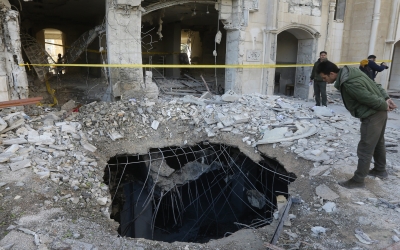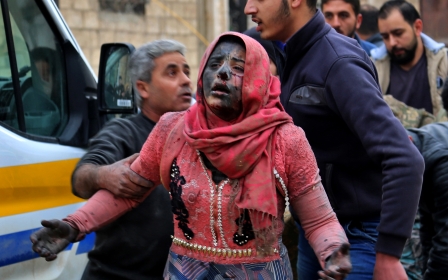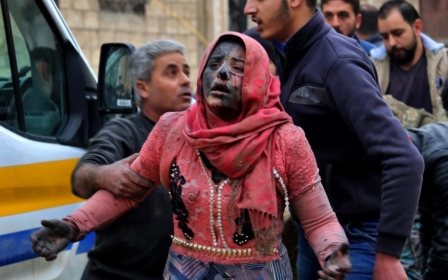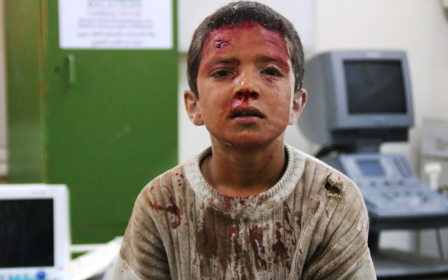Syria: Civilians killed in Idlib as Damascus escalates bombing in north
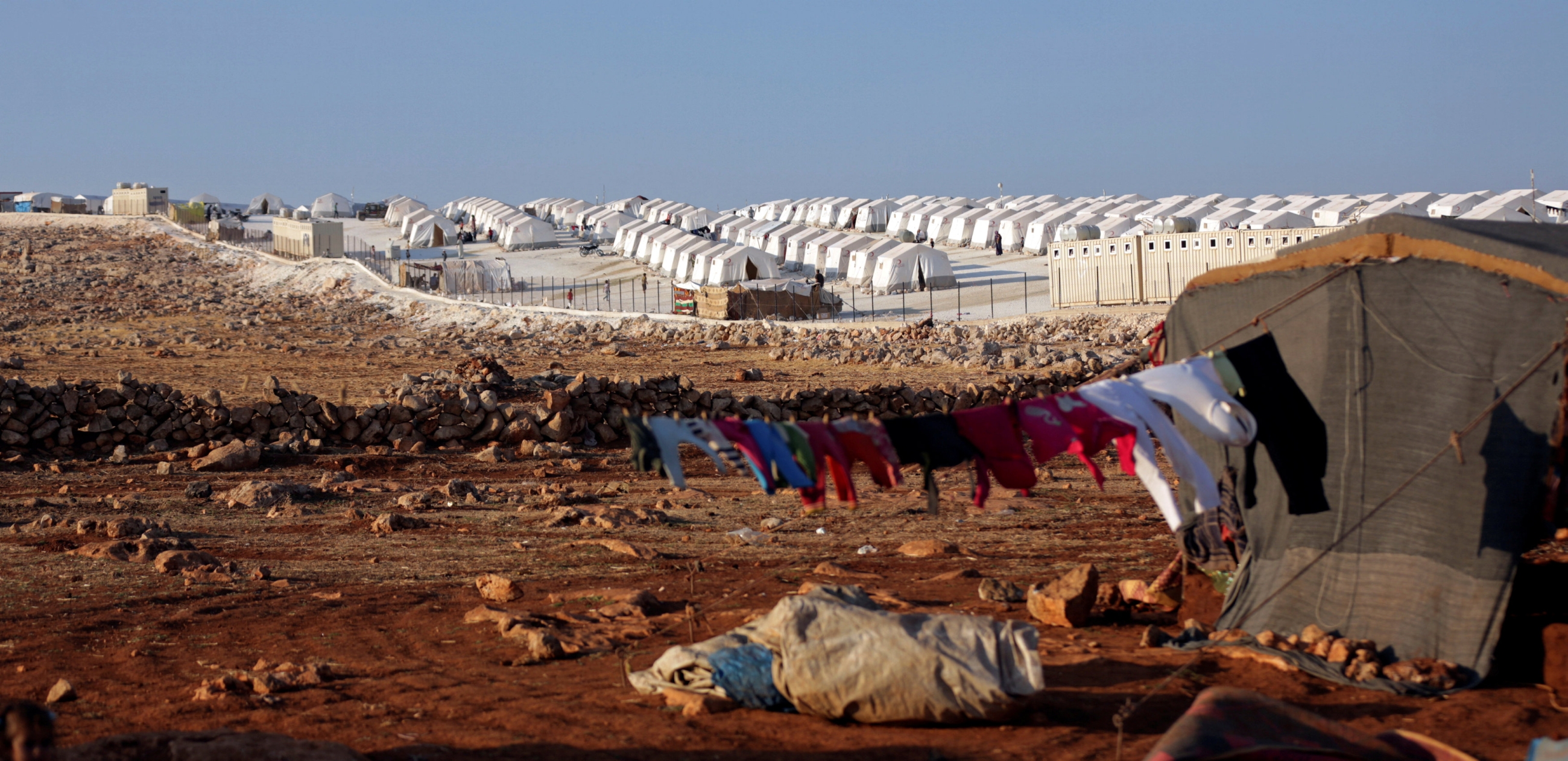
More than a dozen civilians were killed in a round of Russian and Syrian strikes on rebel-held Idlib according to local monitoring groups, as government forces escalate its bombardment in northern Syria.
Local aid workers who spoke to Middle East Eye said that villages in north-western Syria faced heavy fire from government forces.
Bassam Haj-Ali, an aid worker with Violets NGO, said that the city of Saraqeb, where he is based, had faced heavy bombardment by the Syrian government.
"Since yesterday, the city has been under intense fire, but this morning the bombing has increased with artillery attacks," Haj-Ali told MEE via Whatsapp.
"Civilians and civil defence forces are working together to help rescue those who are stuck under the rubble and trying to transfer them to the closest medical points."
Information gathered by the Response Coordination Group, a Syrian-based NGO, said that Russian and Syrian government forces struck the towns and villages of Saraqeb, Al-Nayrab, Al-Khawain, and Maarat al-Numan.
Doctors working in Saraqeb also told MEE that they had seen patients coming into their medical facilities with injuries sustained from cluster bombs.
"We have been receiving dozens of wounded struggling from critical injuries, but we don't have the medical staff to help them," said doctor Hosam Mohammed, the director of the Hareem hospital in northern Syria.
"This morning, a man with his two sons came to the hospital with severe injuries from the Saraqib attacks. The shrapnel was all over their bodies from this morning's cluster bomb."
This latest round of bombardment comes after Syrian government shelling killed at least a dozen people in the rebel-held northwest on Thursday, rescue workers said.
The bombing killed at least 12 people and wounded dozens in Kafr Nubl, where one missile hit a market, said Obada Dhikra, the director of the civil defence service in the area. The number of dead could rise due to the severity of the injuries.
The Syrian Observatory for Human Rights separately reported that government shelling had killed 17 civilians on Thursday in different locations in the northwest, with half of the dead under the age of 18.
Tense situation
The northwest represents the last big piece of territory held by rebels opposed to President Bashar al-Assad.
Last year, the Syrian government, backed in the war by Russia and Iran, was poised to mount a major offensive into part of the northwest - Idlib and adjoining parts of Hama and Aleppo provinces - raising concerns of a humanitarian catastrophe.
But the attack was postponed after Moscow struck a deal with Ankara that included the creation of a "demilitarised zone". Moscow is the government's strongest ally, and Turkey backs some rebel groups and has troops on the ground in the northwest.
Syrian Foreign Minister Walid al-Moualem said the government was still determined to take back the territory and repeated the government's view that Turkey had failed to implement the agreement with Russia.
"Until now, we hear from our Russian friends that the situation is difficult, but that Turkey is determined to implement the agreement," Moualem said.
"Patience has limits. We must liberate this land, and therefore our Russian friends began to feel our patience running out, and they are dealing with the matter with the Turkish leadership," he said at a Damascus news conference.
The northwest, including Idlib province and parts of Hama and Aleppo provinces, is home to about four million people, half of whom had been internally displaced, the United Nations says.
Reuters contributed to this report.
Middle East Eye propose une couverture et une analyse indépendantes et incomparables du Moyen-Orient, de l’Afrique du Nord et d’autres régions du monde. Pour en savoir plus sur la reprise de ce contenu et les frais qui s’appliquent, veuillez remplir ce formulaire [en anglais]. Pour en savoir plus sur MEE, cliquez ici [en anglais].


